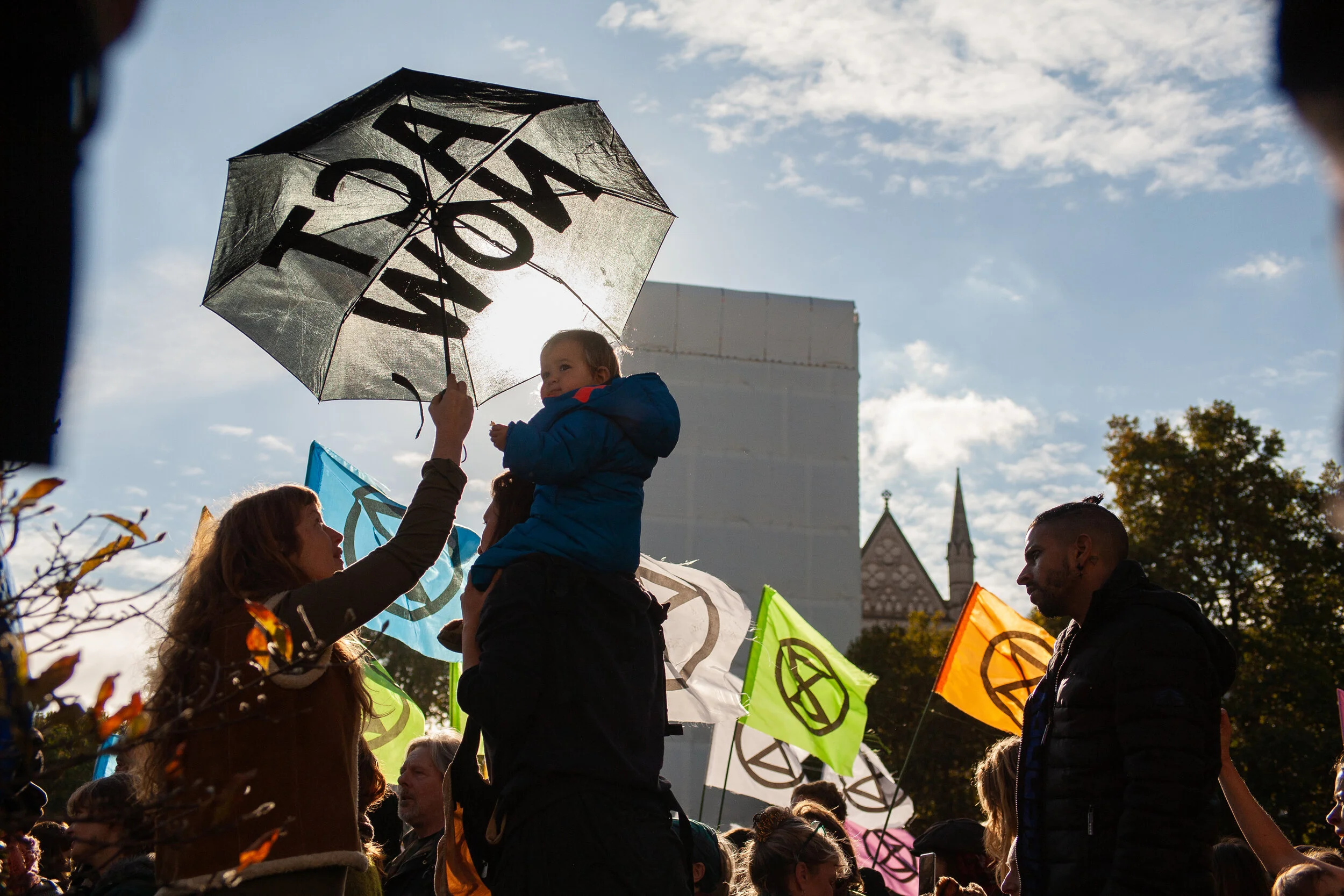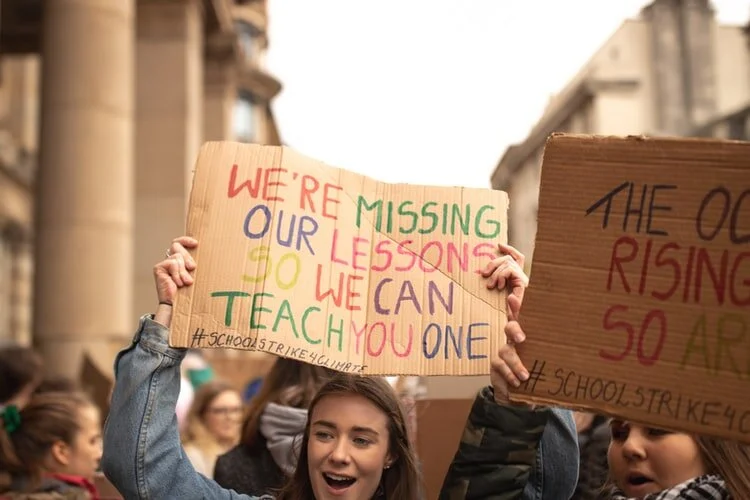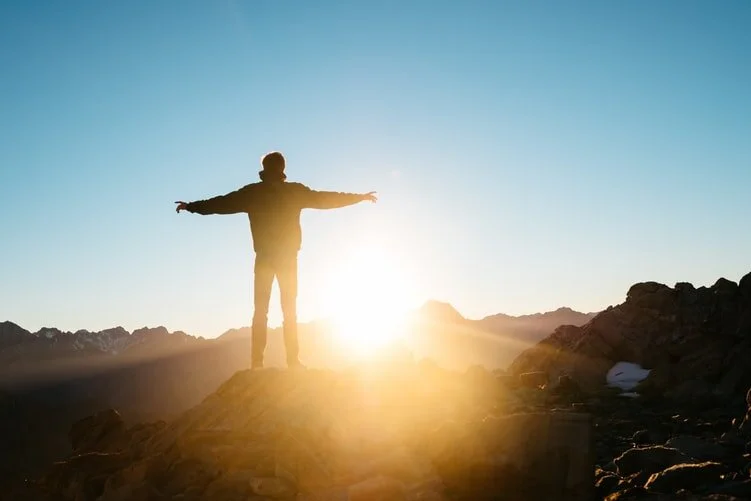The future feels different now. Different somehow, from how it was when I was young. Back then, when the world seemed full of possibility, the future was dependable. The future was safe. Back then, we took pleasure in dreaming, didin’t we? We were excited to imagine the future. The things we would do. The lives we would lead. The worlds we would change. But today, as I sit at my desk and think about the future, I start to feel unsure of myself. I suspect, deep down, that the future is a fantasy. A dream we have indulged in. A story we have told our children. Perhaps the future is already here. Or perhaps we just forgot about it. Perhaps the future died when the banks collapsed. Or the libraries closed. Or the wildfires came.
I do not look forward to the future like I used to. I do not sit and dream about the life I will lead or the things I will do. In fact, these days, I have to force myself to think about it. Dreaming is effort. Imagination is work. Hope is complicated.
At times of crisis, the future collapses into the present. Democracy is dying. Fascism is rising. The gap between the rich and the poor is opening up beneath us like a chasm in the earth. Capitalism cracks at the edges and creaks in the wind. This is the age of collapse. This is the future we are building for our children.
Of course, for many of us, the future never felt safe, did it? For marginalised groups in our society, the future never was a land of opportunity. For women, for queer people, for people of colour. The future was never safe or secure. It was still subject to the same laws, the same oppressions, and the same injustices. To oppress is to deny. To deny the capacity to dream and to delay the possibility of change.
Thus, opposition to climate policy comes in the form of denial. In attempts to delay and to destroy the future that we all know is coming. In order to resist, we must learn the lessons of the past. And we must work together to articulate a different future. A future that depends on others – ordinary people working together, standing alongside one another. A shared solidarity.
From the civil rights movements to the suffragettes, working men and women have had to fight for their future. It is, after all, an essential part of the struggle. Everything we have in the present had to be fought for in the past, and the future had to be won.
Climate change is the greatest challenge our civilisation has ever encountered, but the climate and ecological emergency is not an entirely new phenomenon. Climate change is not new in so far as the systems that created it are not new. Quite the opposite. The forces of power and oppression that drive the climate crisis are painfully familiar. We have been resisting them for years. And, what is more, we already have the tools to defeat them.
For the last five years, the left in Britain has been attempting to build a better future. The Corbyn project, if we can call it that, was a vision of change. It was a vision that could, of course, be messy and complicated, contradictory and ill-conceived. But at its heart was a lasting solidarity. A project that redefined and reimagined what it was to advocate for justice. To disentangle the destructive legacies of colonialism and to move past the dangerous tendencies of late stage capitalism.

© Francesca E Harris
Many of my friends in the climate movement thought I was foolish to place my hopes in such a project. For them, the political system will never lead to the radical change we need to survive. Perhaps they are right. I like to think that our theories of social change can coexist, that on the way to a completely redesigned political and economic system – such as the science and the planet demands – we can see positive change both inside and outside of parliament. After all, the transition to a different future has to be democratic if it is going to be rooted in justice.
Over the last year, the climate movement has been unstoppable. We went on strike and we shut down oil rigs. We blocked roads. We occupied banks. We marched through the streets in our millions. In Britain, we forced the UK Parliament to declare a climate emergency, becoming the first country in the world to do so. At times last year, it felt like we were dreaming. And, at times last year, I suppose that we were.
But there’s no use pretending that everything was brilliant. Emissions continued to grow. Temperatures continued to rise. Indigenous leaders were murdered in the Amazon. Children were killed in African mines. And, in Britain, tens of thousands of people died as a result of air pollution.
It was the best and the worst of times. And, throughout it all, I looked forward to change in the future. To the implementation of a Socialist Green New Deal. The most progressive and ambitious climate policy of any mainstream political party in Europe.
So, when the Labour Party lost the last general election, I felt a profound sense of loss. I was lost, somehow. Displaced, suddenly. Unsure of myself and my country, where we were heading and what it was that we wanted. When we lost, we lost more than just an election. We lost our community centres. We lost our libraries. We lost our schools and our hospitals. But more than that – we lost our future.
As a movement, we now need to come to terms with our loss. In doing so, we have to be prepared to listen and to seriously reflect on all our failings. We must think very carefully about the next five years. How are we going to protect minorities, stand up for migrants, and defend the working class? How are we going to advance the righteous cause of justice and resist the creeping tide of privatisation? These are difficult questions. And the answers will be difficult too. But we cannot, and we must not retreat from this fight. In fact, we have to do the opposite. We have to advance. We have to keep on going. Because no matter how hard it may get or how painful it might be, now, more than ever, we have to think about the future.
The future is all we have. But the future is different now. More distant. Less stable. And we have to be honest about where it is heading.
To address the climate and ecological emergency, we need to drastically reduce our carbon emissions today. If we do not, then we are likely to lock in dangerous levels of warming. The truth is we probably already have. The difference between half a degree of warming is not some small or arbitrary figure. It is the death and displacement of hundreds of millions of people. It means pain and suffering on a scale most of us would find totally unimaginable. It is a world of floods. Of droughts. Of wildfires. Of mothers forced to bury their children. Of men who drown at sea and women who are sent to war.
This is another kind of death. Another way to steal the future. And the next five years are vital if we wish to prevent that.
Of course, the next five years are also part of our problem. We now face another five years of brutal Conservative rule and – if previous Conservative governments are anything to go by – then the future does not look bright. If we continue on our current trajectory, then we will continue to miss our weak and unambitious targets. We will continue to pay lip service to the environmental movement, whilst doing nothing to address the underlying drivers of this crisis. In short, we will continue to do nothing.
As the far right mobilise, we will see the rise of eco-fascism in the next five years. We will see governments turn to even more authoritarian policies in order to demonise migrants and shut out refugees. We will see democracies fall and demagogues rise. We will see wars over resources. Attacks on minorities. The collapse of liberal democracy. Unless we can stop it. Unless we can resist.

Any serious political project must look to the future if it is going to survive. We can’t have infinite growth on a finite planet. That much is obvious. And, thus, if we are going to face the full truth of the climate crisis, then we will of course, sooner or later, have to rework and reimagine the capitalist model. Perhaps that sounds radical to some, but it is what the science is telling us. We urgently need to transition to a new type of economy and we are running out of time in which to do so.
In order to win, we are going to need a movement. We are going to need the climate movement and the labour movement to work together. We are going to need politicians who embrace activism and activists who are intelligent political operators. We are going to need creative and innovative tactics for the twenty-first century.
We need to persuade people that there is an alternative, that a fair and just future is still possible. We have to carefully explain to those on the soft-left or in the centre that their commitment to growth is untenable, that they are engaged in a different form of climate denial: that in refusing to engage with the post-growth literature and take part in the hard work now to rework and reimagine their old ideologies, they are inadvertently sowing the seeds of disaster.
In order to do this, we need to open up our movement. We need to welcome people in and extend our solidarity outwards. We need to work alongside other progressive parties and movements to achieve short term goals and prefigure the kind of future we want to see. We need to turn the labour movement into a real social movement again. We need to usher in a new age of activism; we need to train people up, share knowledge, and foster action. We need to be campaigning all year round, not just during an election. The narratives we need to articulate are nuanced and complex, and we must not take anything for granted.
We can start by supporting policies to further democratise the Labour Party, to empower ordinary people to take part in political organising and to centre working class and trade union voices in our activism. We need to support the open selection of candidates and attempt to make the party machinery more transparent. We need to promote young people, people of colour, and working class trade unionists to positions of power within our movement. We need to create new spaces in which ideas can be articulated and policies can be debated. We need to model forms of direct democracy that go further than constituency meetings. We need to listen to members and learn from their experiences. Young activists are pioneering new forms of activism; precarious workers are mobilising in new and innovative ways, whilst young climate activists have managed to do more for the movement than decades of marches and petitions. We have to be led by these voices. Don’t just put them on panels or invite them onto your podcasts. Give them jobs in the party, give them platforms in the media, empower them to win.

We must realise that in order to tackle the climate and ecological emergency, we must also address the crisis of democracy. We must empower people up and down the country – we must devolve power and de-centralise all our organising. We must commit to electoral reform and move towards a system of proportional representation. We must commit to the democratisation of the media and build new platforms for debate and discussion. We must commit to the abolition of the House of Lords and support the creation of an elected second chamber. Or a second chamber of ordinary people chosen through a process of sortition. Either way, we must acknowledge that democracy is a force for justice and, in transitioning to a whole new society, it is imperative that ordinary people are the drivers and leaders of that change.
We need to turn the labour movement into a force for the future. A movement which proactively defends migrants rights, organising protests outside detention centres and taking action on deportation flights. A movement which intelligently imagines an alternative to capitalism, pioneering new economic models and forms of community banking. A movement which learns how to tackle the climate emergency, rewilding the city and investing in the countryside. We must be both local and global. We cannot allow a programme of degrowth and devolution to also mean a retreat towards dangerous forms of nationalism. We must advance the cause of international socialism and move forwards with an outward looking movement. We must unpick the problems with our own ideology. We must admit where we have got it wrong and the important work that we still need to do. We must start talking about ideas that have hitherto been cast aside for the sake of electability. Ideas that people will find hard at first, but are absolutely vital for our future. That means talking seriously about reparations. It means interrogating the legacies of colonialism and pushing for an international Green New Deal. At the same time, it means acknowledging the gaps in our thinking. It means explaining the problems with green capitalism, shining a light on the human rights abuses in the global supply chain. It means accepting growth must end and transitioning instead to a programme of sustainable economics and radical degrowth.
We must start from the future and work our way backwards.
It seems to me that we now have two futures. One in which sea levels continue to rise, fires tear through the woods with wild abandon, and earthquakes become more and more frequent. This is a future in which governments continue to act against the interests of their citizens. In which multi-national corporations continue to desecrate our land and destroy our homes. In which the earth becomes uninhabitable. Destroyed by a political system that never listened. And an economic system that never cared.
This is the future that we are heading towards. But there is, I hope, another path. A better future. A coming day. In which, perhaps, we remember who we are and what we value. In which, perhaps, we grieve for the damage we have done and the people we have killed, and vow to never make the same mistakes again. In which, perhaps, we dare to dream, to hope, to imagine. To build something better. To create something new.
Because now is the time to keep on dreaming. Not because we are dreamers, but because we are realists. Because we have read the reports and familiarised ourselves with the science. But, more than that, because we have seen it. Because we have had a taste of the future. The fires. The storms. The coming disasters. And we know it is going to get worse.
As a society, we stand at a crossroads. There is one future in which there is collapse. And there is one future in which there is change. We have to plan for the future that is coming. And, at the same time, we must work towards the future that we want. A better future out of the wreckage of the last one. Because now is not the time to retreat. Now is the time to transform, to evolve, to fight.
The coming decades are our last chance. Our final call. To make that future now.





